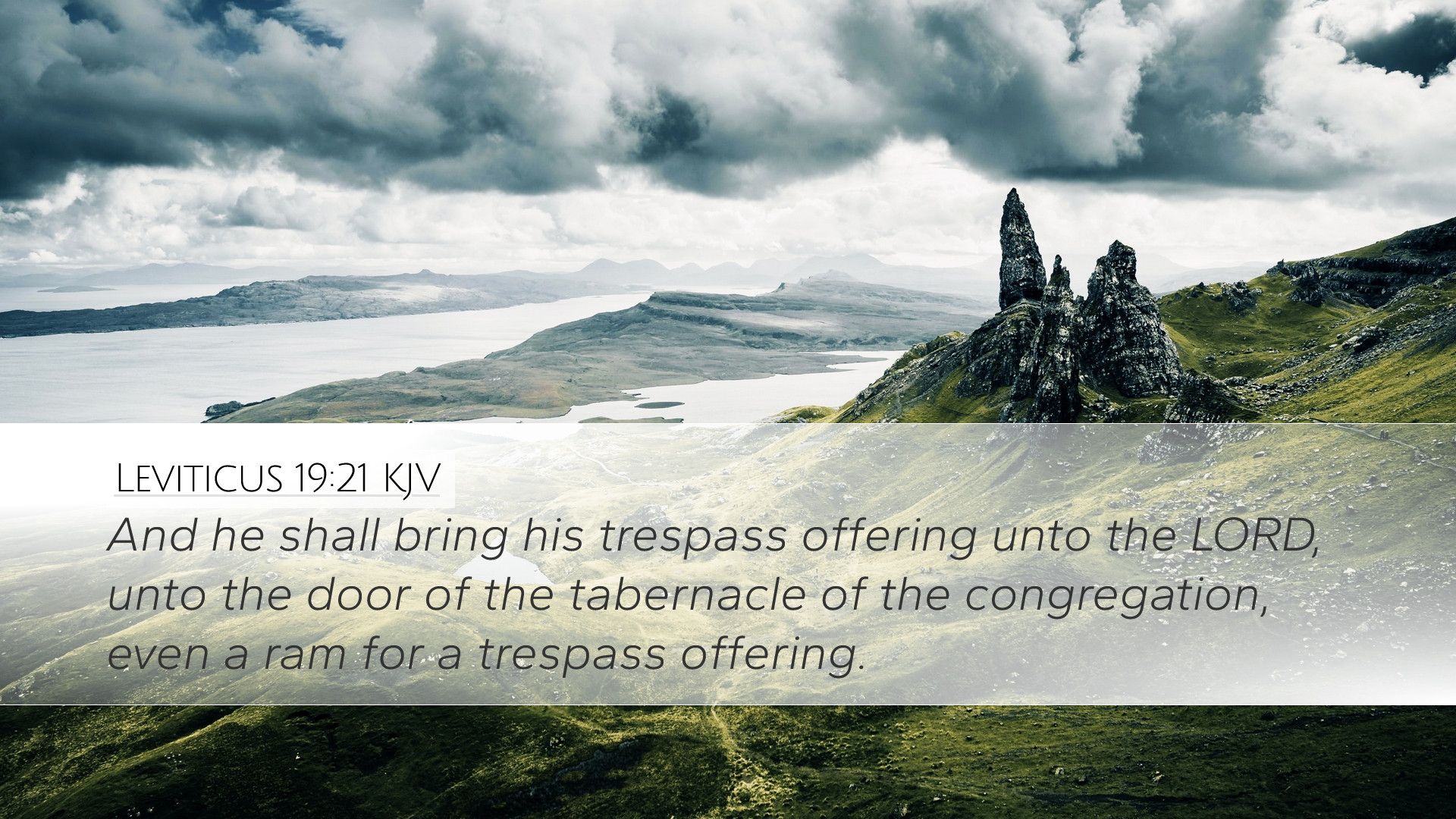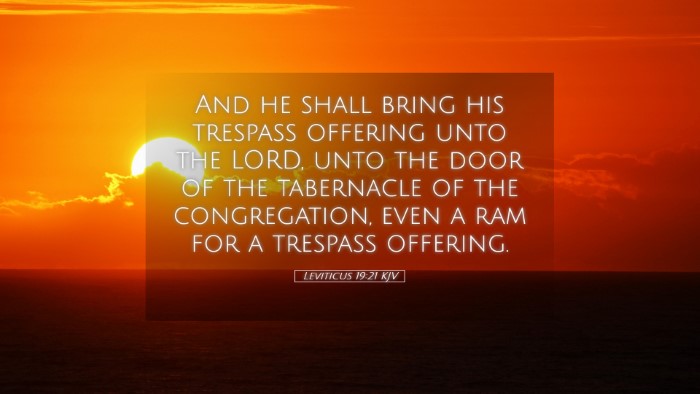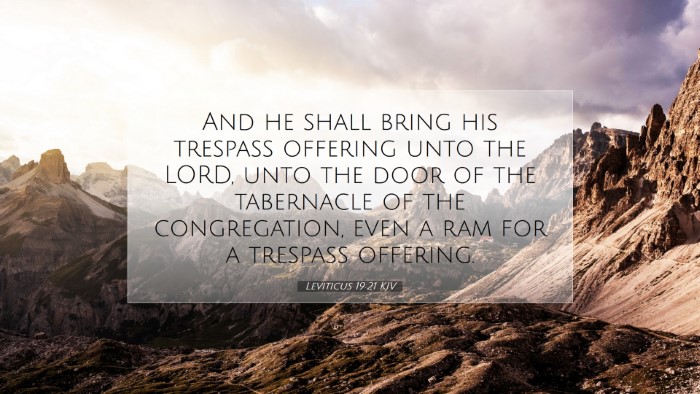Commentary on Leviticus 19:21
Leviticus 19:21 states: “And he shall bring his trespass offering unto the LORD, unto the door of the tabernacle of the congregation, even a ram for a trespass offering.” This verse offers rich theological implications and ethical considerations that are significant for understanding sacrificial systems in the Old Testament. The following commentary integrates insights from Matthew Henry, Albert Barnes, and Adam Clarke, providing depth for pastors, students, theologians, and Bible scholars.
Contextual Overview
Leviticus is a book that focuses on the laws and rituals that God gave to the Israelites. It encompasses a wide range of topics, establishing not only ceremonial laws but also moral and ethical guidelines meant to govern the conduct of God’s people. Chapter 19 presents specific obligations and social ethics, showcasing God's concern for holiness among His people.
The Nature of Trespass Offerings
In Leviticus 19:21, the call for a trespass offering signifies a recognition of guilt and the need for atonement. This offering was a vital component of the sacrificial system and symbolized both an acknowledgment of sin and a desire for restoration:
- Matthew Henry emphasizes that the trespass offering was to be brought to the door of the tabernacle, indicating the public acknowledgment of sin and the importance of seeking God’s forgiveness.
- Albert Barnes notes that the ram specified for the trespass offering indicates a costlier sacrifice, reflective of the seriousness of the sin committed.
- Adam Clarke elaborates that the trespass offering served as a means of reconciliation, highlighting God's mercy in allowing sinners to come to Him for forgiveness.
Theological Implications
The act of bringing a trespass offering carries profound theological implications:
- Holiness of God: This command signifies the holiness of God and the necessity for Israelites to maintain a clean and purified relationship with Him.
- Human Inability: The need for a trespass offering underscores human inability to meet God's standards of righteousness without divine provision.
- Atonement and Redemption: This ritual foreshadows the ultimate atonement provided through Christ, representing God's redemptive plan for humanity.
Practical Application
For contemporary readers, the implications of Leviticus 19:21 extend beyond ancient rituals:
- Recognition of Sin: Modern believers are called to acknowledge their sinfulness and the necessity of repentance in their lives.
- Public Confession: The call to bring the offering at the door of the tabernacle may call today's believers to engage in community accountability and confession.
- Understanding Sacrifice: The costly nature of the offering invites believers to understand the weight of their sin and the depth of Christ's sacrifice.
Conclusion
Leviticus 19:21 serves as a profound reminder of the significance of sacrificial systems in portraying the character of God. It calls God’s people to conscious awareness of their actions and the steps required for atonement. Through the insights of historical commentators like Matthew Henry, Albert Barnes, and Adam Clarke, we see this verse as not merely a ritualistic obligation but as a rich theological concept that connects ancient practices of atonement to the New Testament fulfillment in Christ. As pastors, students, and theologians contemplate this text, they are encouraged to reflect on the indispensability of confession, repentance, and the grace offered through the sacrificial love of God.


